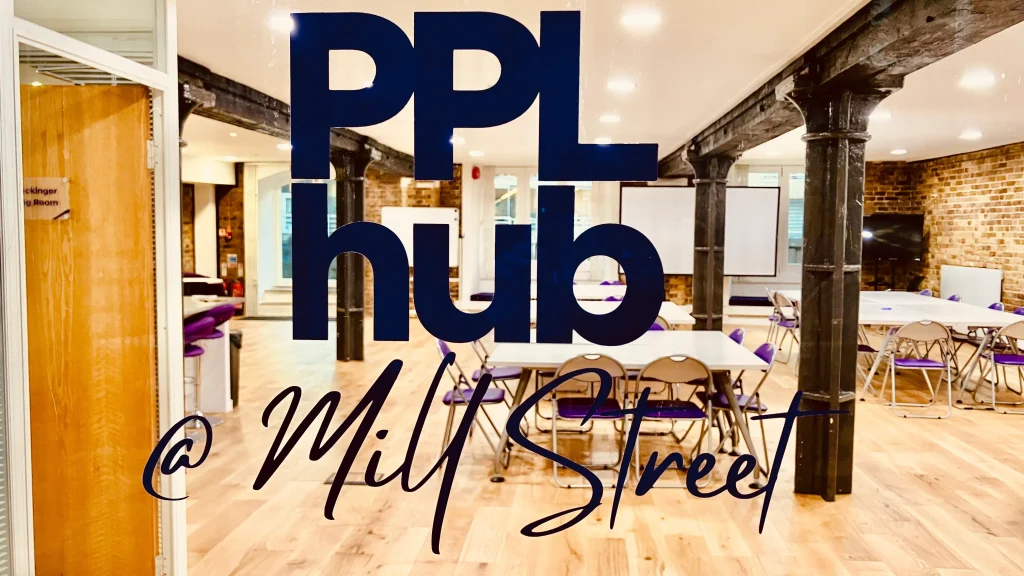One of the challenges faced by the charity sector is the cost and availability of affordable office space. This issue is compounded by economic pressures such as the level of donations and demand for services, as well as squeezing resources to cover operational costs. An interesting, emerging solution, as the state of corporate workspaces also evolves, is the opportunity for shared and subsidised workspaces between charities and businesses.
Businesses can support charities in their workspace requirements in several ways:
- Offering unused/underused office spaces to charities
- Hosting events or providing logistical support
- Offering digital tools and platforms for remote collaboration to help charities maintain connectivity and efficiency without the need for physical office space
Opportunities or examples of this happening

The PPL Hub
PPL, a social enterprise management consultancy, launched The Hub in Southwark, London, to provide free meeting and office space for charities. This initiative supports organisations like Diabetes UK and Read Easy Southwark by offering a venue for collaboration and creativity without the financial strain of rent. The Hub exemplifies how businesses can directly address the workspace crisis by creating dedicated spaces for social impact work.
Ansvar’s Community Hub
Benefact Group company, Ansvar Insurance, recently launched a Community Hub in their new Brighton office which provides free meeting spaces for local charities, facilitating networking and collaboration. This initiative helps charities share resources and ideas, enhancing their capacity to serve their communities.
ASTOP
ASTOP connects charities with landlords who have empty retail and office spaces, facilitating short, flexible leases. This arrangement allows charities to operate rent-free, enhancing their visibility and credibility. ASTOP’s model not only supports charities like Mind and Age UK but also helps landlords reduce business rates, creating a win-win situation.
The Impact Hub
Impact Hub provides subsidised co-working spaces globally for social entrepreneurs and charities. Their model supports collaboration and innovation, enabling charities to access resources and a community focused on social impact.
Flexible workspaces
Ethical Property, as well as co-working space company Canopi, offer affordable office spaces across the UK for charities and social enterprises. These aren’t free, but they offer flexible contracts that take into account expansion, downsizing and change of circumstances.
These case studies illustrate how strategic partnerships between businesses and charities is one way of addressing the workspace overheads. As well as the savings, just like co-location and co-working spaces, these partnerships can increase collaboration, accessibility and efficiency through further sharing of resources.
Further reading
Access Insurance write about the risk considerations of sharing office space with other charities or businesses on ACEVO’s blog.







